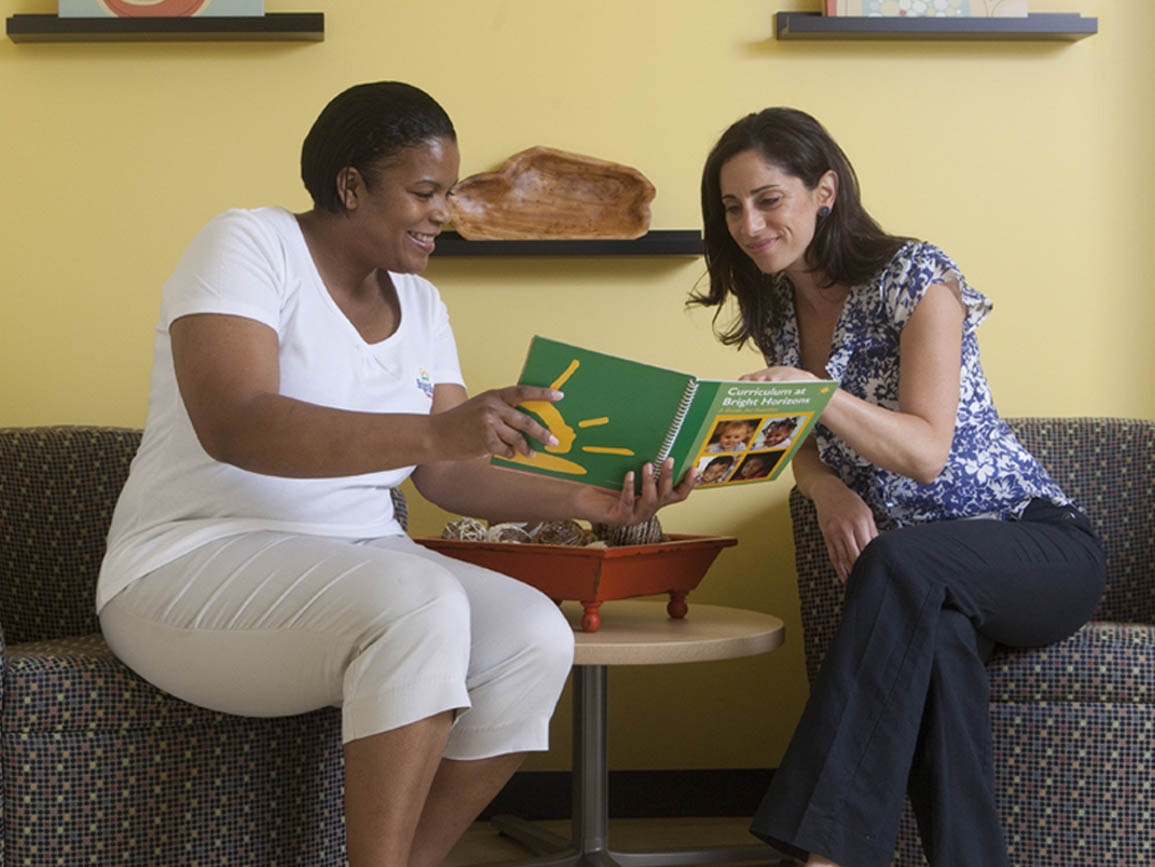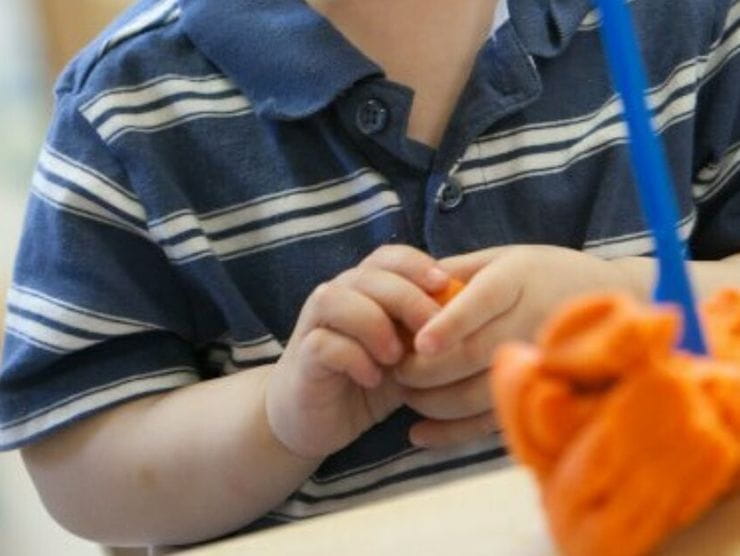Positive Parent-Teacher Relationships
So how do we as parents help create a successful relationship with our childs teacher while integrating our advocacy and the deep visceral feelings that form our responses to teacher comments? The basis for positive parent-teacher relationships is frequent and open communication. Both teachers and parents share the responsibility for creating such a foundation.
Teachers are often surprised to find out that parents in professional careers, as well as parents from all backgrounds, can be insecure, uncomfortable, or anxious when it comes to talking about their child. So what can parents do to build a good parent-teacher relationship?
- Accept that the education and care of our children is complicated and sharing love and responsibility for them with their teacher can be difficult.
- Build a relationship with our childrens teacher by introducing ourselves, participating in the classroom, and initiating regular contact.
- Understand that parents worry about what their children learn, while teachers are more concerned with how they learn. We focus on the products of our childrens work while teachers focus on the process of learning.
- Address any issues or concerns as they arise. Good teachers want to know what we are thinking and feeling.
- Respect teachers by not confronting them in front of the children. Address them during parent-teacher conferences or set up a mutually convenient time to talk.
- Control your anger. So often we get angry before we really know the facts about what is happening.
- Appreciate the efforts of your child’s teacher. We probably wouldn’t last long caring for and educating 25 second graders.
Supporting Our Childrens Teachers
Teachers come to any parent-teacher relationship with their own passions and anxiety. They want every child to succeed; to somehow balance all the diverse strengths and needs of the 25 or 30 children in their class, and to meet all the parental expectations and deal with concerns. They want the classroom to be a place of learning and community. They worry about the challenges that some children have, the bureaucratic requirements, and parent expectations. If we want our children to succeed, it is in our interest to help their teachers succeed.
According to teachers, here are a few things that we can do as parents to build parent-teacher relationships and guide them as they work with our children and our families:
- Read School and Classroom Information. Whether it is the Parent’s Handbook, a newsletter, or a memo about a field trip, try to read all the information that comes home. Have a special folder at home or work for organizing all of the school information. Some notes will require you to respond and others you can read at your leisure, but sort through the information daily.
- Ask Teachers Questions. If you have a question or concern, address it with your child’s teacher immediately. Communicate with teachers and give them a call during school or write her a note. Resist the urge to "just let it go." Sometimes little concerns can become bigger issues if you don’t talk about them. Your child’s teacher will appreciate knowing what is on your mind and working together to figure things out.
- Offer to Help. Many schools have lists of ways you can volunteer, or periodic sign-up sheets for classroom parties, field trip chaperones, or preparing craft materials. Although not every volunteer effort requires you to be on-site, there are many activities for parents to assist in the classroom. Ask your child’s teacher if you can help and even if she doesnt need any assistance at the time, she’ll feel good that you asked and you’ll feel good that you offered.
- Attend School Functions. Show your child’s teacher that you support her by making school functions a priority. Whether it is Back-to-School Night, parent workshops, field trips, holiday celebrations, or graduation, your child’s teacher invested time in organizing the event and is eager to share information and fun with you. Most importantly, your child will be excited that you’re at his school. Nothing can take the place of your presence as a parent.
- Do Your Part as a Parent. If you are supposed to wait outside the classroom before the class trip begins, or turn in your childs medical form by a certain date, try to follow the rules and make the teachers request a priority. Being responsible sets a good example for your child, and the teacher can spend more time with your child if shes not continually following up or reminding parents.
- Show Your Appreciation for Teachers. Everyone is motivated and encouraged by supportive words. Build your parent-teacher relationship by letting your childs teacher know that you appreciate her efforts by writing teacher appreciation cards for helping your child feel comfortable at school, or send a more detailed letter outlining her successes and give a copy to the teacher’s supervisor. Plants, flowers, and presents made by your child can make your child’s teacher feel supported, too.
An Essential Conversation with Parents and Teachers. Sarah Lawrence-Lightfoot, distinguished Harvard professor and a long-time member of the Bright Horizons Board of Directors, has written thoughtfully on parent-teacher relationships over the years. In her book, "The Essential Conversation: What Parents and Teachers Can Learn from Each Other," Lightfoot writes about the inherent tensions in the roles of parents and teachers and explores the parent-teacher conference and relationship. Here are some excerpts:
- Parents and Teachers: Uneasy Allies? "Everyone believes that parents and teachers should be allies and partners. After all, they are both engaged in the important and precious work of raising, guiding, and teaching our children. But more often than not, parents and teachers feel estranged from and suspicious of each other. Their relationships tend to be competitive and adversarial rather than collaborative and empathetic. Their encounters feel embattled rather than peaceful and productive." (Sarah Lawrence-Lightfoot, "The Essential Conversation: What Parents and Teachers Can Learn from Each Other.")
- Why is there tension between people who all have the best interests of the child at heart? "Our role as parents is to provide the best life for our children. To protect them, teach them, and assertively navigate and advocate for them in the complex world of society’s institutions of family support, child care, school, and much more. A school teacher’s role is to try to do what society feels is necessary for all children. Conferences are occasions when parent and teacher perspectives come together, and it is not unusual for role differences and our own experiences with school and anxiety to get in the way of a productive conference."
- "To parents, the child is the most important person in their lives, the one who arouses their deepest passion and greatest vulnerabilities, the one who inspires their fiercest advocacy and protection. And it is teachers - society’s professional adults who are the primary people with whom parents must seek alliances and support in the crucial work of child rearing. They must quickly learn to release their child and trust that he or she will be well cared for by a perfect stranger whose role as teacher gives him or her access to the most intimate territory, the deepest emotional places. Their productive engagement with the teacher is essential for the child’s learning and growth, and for the parent’s peace of mind. All of these expectations get loaded on the encounters between parents and teachers." (Sarah Lawrence-Lightfoot, "The Essential Conversation: What Parents and Teachers Can Learn from Each Other.")
- What is the most important thing parents and teachers should do to prepare for a conference? "Parents should come prepared to share their very intimate and complex view of their child, bringing a vivid anecdote or story that will help the teacher know their child better. Teachers need to come to the meeting prepared with evidence of the childs work — writings, homework assignments, tests, and observations gathered in a portfolio that will help focus the conversation and make it productive. In other words, teachers should be prepared to offer parents a vicarious view of their childs life in the classroom. Just as important, parents and teachers both must come to the conference with their defenses down and their hearts open, prepared to listen, to really hear and appreciate the others perspective."
- "Every time parents and teachers come together in the classroom, their conversations are shaped by their own stories, unconscious replays of childhood experiences. The parents sit facing the teacher in the chairs that their children inhabit each day, and they begin to feel the same way they felt when they were students — small and powerless. When teachers offer observations and evaluations of their students, they are often using values and frameworks carved out of their own childhood experiences. Adults come together prepared to focus on the present and the future of the child, but instead feel themselves drawn back into their own pasts, visited by "the ghosts" of their parents, grandparents, and former teachers. I believe that communication between parents and teachers is enhanced when there is an awareness and consciousness of these "ghosts," but that they should never overwhelm the focus on the immediate moment in the childs life." (Sarah Lawrence-Lightfoot, "The Essential Conversation: What Parents and Teachers Can Learn from Each Other.")
We hope these insights and tips for building a parent-teacher relationship and communication provide you with a valuable perspective, and give you important information as you head into your child’s parent-teacher conference.





